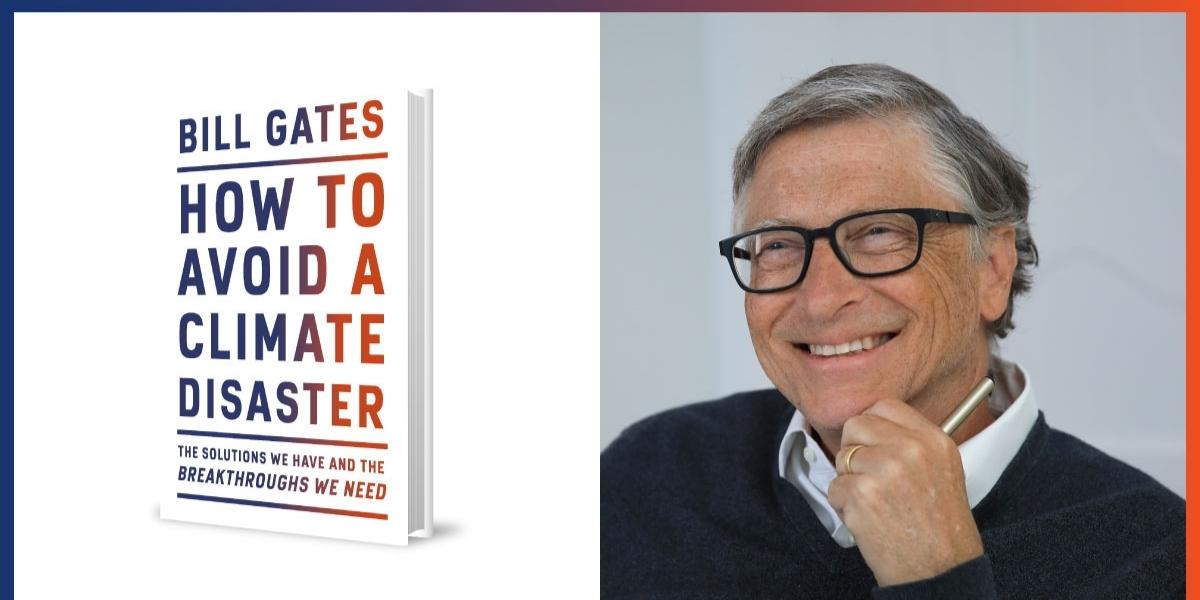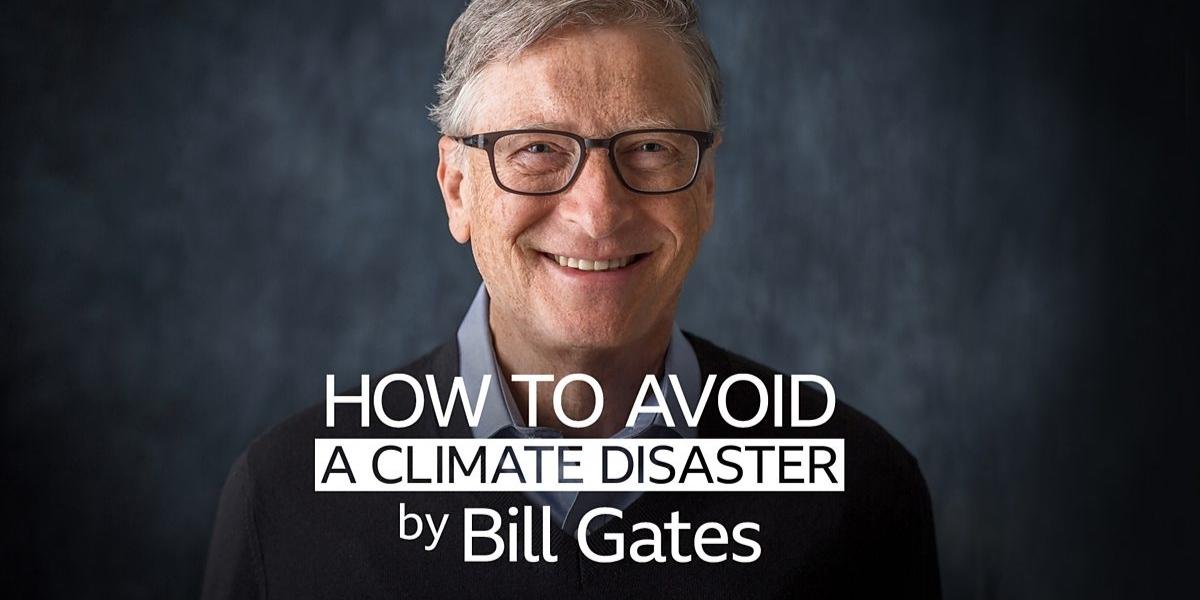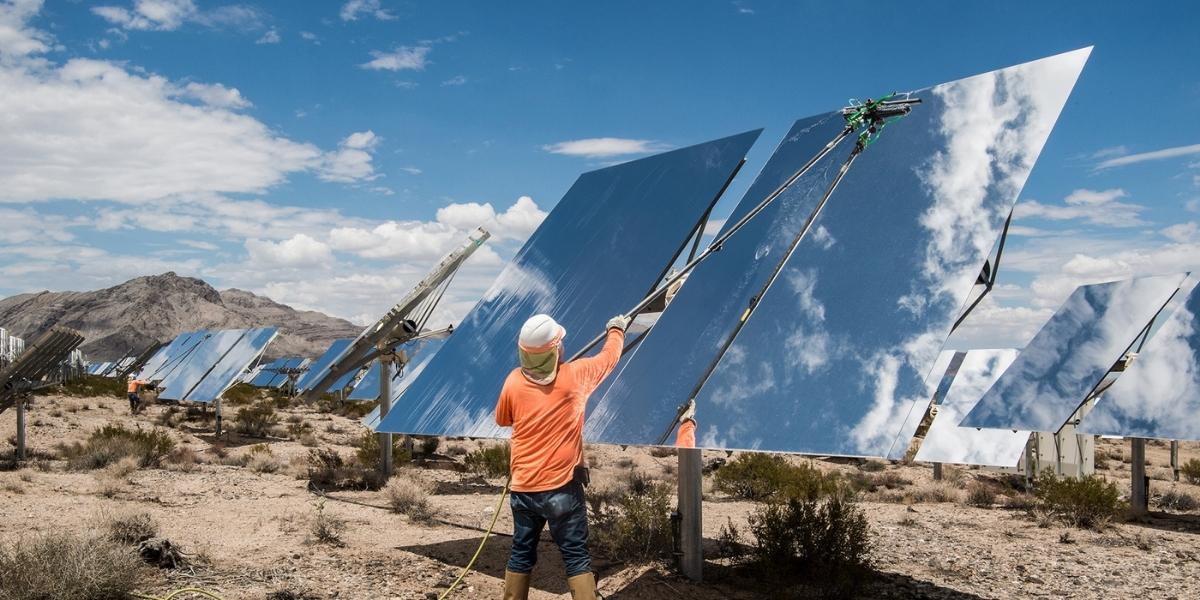Bill Gates: Reducing Consumption Won’t Stop Climate Change
October 01, 2022 By Omal J

(Image Credit Google)
 "You can have a cultural revolution in which you try to throw everything up, or you can create a North Korean-style situation in which the state is in control." "I think the collective action problem is just completely unsolvable without an enormous central authority to have people just obey," Gates said.
Most people will not change their behavior in ways that make them less comfortable for the sake of solving a global problem, according to the billionaire.
Even if countries and individuals have enough abundance in their lives and can cut back, Gates believes that it will not be enough to reduce greenhouse gas emissions sufficiently to rein in climate change. According to Gates, he pays $9 million per year to compensate for his greenhouse gas emissions.
"You can have a cultural revolution in which you try to throw everything up, or you can create a North Korean-style situation in which the state is in control." "I think the collective action problem is just completely unsolvable without an enormous central authority to have people just obey," Gates said.
Most people will not change their behavior in ways that make them less comfortable for the sake of solving a global problem, according to the billionaire.
Even if countries and individuals have enough abundance in their lives and can cut back, Gates believes that it will not be enough to reduce greenhouse gas emissions sufficiently to rein in climate change. According to Gates, he pays $9 million per year to compensate for his greenhouse gas emissions.
 "People in the climate space may not realize how many things are competing for society's modest increase in resources," Gates said. "And that not many people are willing to be worse off as a result of climate requirements."
According to Gates, the solution is to develop better technological alternatives that are the same or less expensive to achieve the same goal climate-consciously. Gates has long referred to the "green premium" as the difference in cost between how something is done traditionally and how it should be done in a decarbonized manner. According to, to effect meaningful change on climate change, the green premium must be gradually reduced and then eliminated in all sectors of the economy.
To reduce the green premium, Gates' investment fund, Breakthrough Energy Ventures, invests in early-stage startups that are working to create new pathways for producing goods or new ways of doing things.
"People in the climate space may not realize how many things are competing for society's modest increase in resources," Gates said. "And that not many people are willing to be worse off as a result of climate requirements."
According to Gates, the solution is to develop better technological alternatives that are the same or less expensive to achieve the same goal climate-consciously. Gates has long referred to the "green premium" as the difference in cost between how something is done traditionally and how it should be done in a decarbonized manner. According to, to effect meaningful change on climate change, the green premium must be gradually reduced and then eliminated in all sectors of the economy.
To reduce the green premium, Gates' investment fund, Breakthrough Energy Ventures, invests in early-stage startups that are working to create new pathways for producing goods or new ways of doing things.
 During the interview, Gates hinted that Breakthrough Energy Ventures would raise a third fund by next year to continue investing in and accelerating the development of these climate startups. He also stated that Breakthrough Energy will most likely raise capital to invest in later-stage companies. "Even though the enthusiasm for investing in tech and climate companies has waned a little, I still believe we'll be able to raise the money," he told Rathi.
Importantly, the path to decarbonization is not always a straight line away from fossil fuels. The conflict in Ukraine, as well as Europe's efforts to reduce its reliance on Russian energy, have demonstrated that there may be temporary setbacks in larger decarbonization goals to care for people.
"When people tell me, 'Hey, we love your climate stuff because we can tell Putin we don't need him,' I'm flattered." 'Yeah, 10 years from now,' I say. 'Call him up and tell him you don't need him,' said Gates.
During the interview, Gates hinted that Breakthrough Energy Ventures would raise a third fund by next year to continue investing in and accelerating the development of these climate startups. He also stated that Breakthrough Energy will most likely raise capital to invest in later-stage companies. "Even though the enthusiasm for investing in tech and climate companies has waned a little, I still believe we'll be able to raise the money," he told Rathi.
Importantly, the path to decarbonization is not always a straight line away from fossil fuels. The conflict in Ukraine, as well as Europe's efforts to reduce its reliance on Russian energy, have demonstrated that there may be temporary setbacks in larger decarbonization goals to care for people.
"When people tell me, 'Hey, we love your climate stuff because we can tell Putin we don't need him,' I'm flattered." 'Yeah, 10 years from now,' I say. 'Call him up and tell him you don't need him,' said Gates.
 Between now and then, the European Union might have to rely on fossil fuels. "Should coal plants be reopened?" Probably. These considerations are critical. Should the gas field in the Netherlands be reopened?
Between now and then, the European Union may need to rely on fossil fuels. "Should you reopen coal plants?" Probably. These pragmatics are crucial. Should that gas field in the Netherlands be reopened? Maybe so. It's a very difficult set of tradeoffs. "It was very unexpected," Gates said. "In the short run, you just have to find any solution, even if it means increasing emissions." The sooner that war is over, the better. But there are many factors to consider when deciding how to end it."
According to Gates, the only viable long-term solution is to find new ways to support people. "I'm looking at what the world needs to do to get to zero, not at climate."
Between now and then, the European Union might have to rely on fossil fuels. "Should coal plants be reopened?" Probably. These considerations are critical. Should the gas field in the Netherlands be reopened?
Between now and then, the European Union may need to rely on fossil fuels. "Should you reopen coal plants?" Probably. These pragmatics are crucial. Should that gas field in the Netherlands be reopened? Maybe so. It's a very difficult set of tradeoffs. "It was very unexpected," Gates said. "In the short run, you just have to find any solution, even if it means increasing emissions." The sooner that war is over, the better. But there are many factors to consider when deciding how to end it."
According to Gates, the only viable long-term solution is to find new ways to support people. "I'm looking at what the world needs to do to get to zero, not at climate."
Leave a Reply

Apple's iOS 18: A Leap into the AI Era
March 12, 2024

Google's Regular Pixel 8 Won't Get Gemini Nano AI
March 12, 2024

MacBook Air M3 Makes Amends for M2's Storage Blunder
March 11, 2024

Samsung Unveils the Galaxy M15 5G
March 11, 2024

Elon Musk's xAI to Open-Source Chatbot Grok
March 11, 2024

Contra: Operation Galuga - A Modern Run-and-Gun Classic
March 11, 2024

Musk Confirms X's TV App Arrives This Week
March 11, 2024
RELATED NEWS
2
3
4
5
6
7
8
9
10



